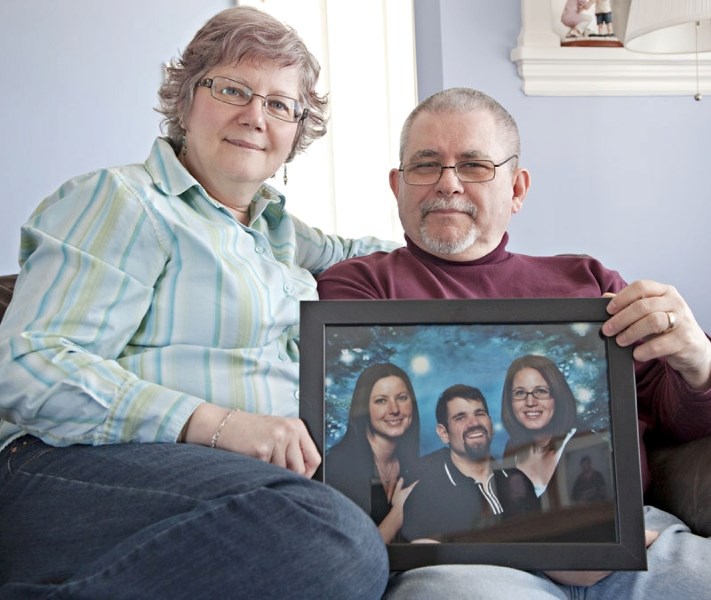Everything changed for St. Albert residents Jan and Rick Fortier and their son, Adam, with a decision by one family to give the gift of life.
A five-year-old girl died, but in the wake of that tragedy Adam was given a new lease on life.
About 22 years ago they were living in Winnipeg, waiting for a liver transplant for Adam.
Suffering from a rare blood disorder — Langerhan’s cell hystiocytosis — he would not have lasted more than a year without the transplant.
When the call came to come over to the Children’s Hospital of Western Ontario in London it was a moment of relief.
That relief continues today, as Jan said her son’s liver is still “functioning beautifully.”
Adam was a rare case. This transplant ultimately cured him. Not all who get an organ donation survive so long. But it still makes a world of difference for many.
“It doesn’t necessarily fix the problem,” said Jan during National Organ and Tissue Awareness Week. “But it can certainly alleviate a lot of the negative aspects of what caused their organ failure in the first place. The quality of life and the years that it adds to their lives really does make it worthwhile.”
Adam always adapted to his condition, Jan explained. On the good days he would “bounce off the walls” like any normal five-year-old. On the bad days he tended to just colour or watch TV.
But towards that last stretch before the call came, it was clear there were more bad days.
“You could really tell that he was not feeling all that great,” said Jan. “He never complained — he would just get very quiet and go off and do something on his own.”
Today Adam attends day programs and then takes off with his friends in the evenings. He is alive and lively and it was the transplant that gave him that opportunity.
Jan’s life was altered in another way by her son’s situation. Today she is a nurse in a critical care unit for transplant recipients and donors at the University of Alberta Hospital.
She has been there for over eight years, and has been a nurse for 16.
“Sitting at Adam’s bedside, hour after hour while he was in the intensive care unit and in the hospital for all those months, I was just in awe of the skill and the professionalism and the compassion that the nurses had,” said Jan. “This was just something I wanted to give back, and I thought ‘I could do this — I could be this for somebody else.’”
Adam was not the only reason — Jan wanted to be a nurse back in high school. But she is not sure she would have done it if her little boy had not been sick.
Along with National Organ and Tissue Donor Awareness Week from April 17 to 23, Alberta Health Services is also celebrating 25 years of heart and lung transplants in the province. A lot of lives have been changed for the better in that period.
But it cannot happen without donors, and in that area, Alberta is perhaps lacking.
“There continues to be a discrepancy, between the number of people that are waiting for transplants and the availability of organs and/or tissues,” said Kim Worton, unit manager for the human organ and exchange program at University of Alberta Hospital.
Part of this past week has been about honouring donors and their families.
The other part is about generating some awareness and education around how people can step up and become organ and tissue donors themselves.
Sign the back of your Alberta health card, for one. But also, said both Jan and Worton, have the discussion with your loved ones and ensure they know what your wishes are.
“It will make the processes for the family easier at the time, when a tragic event occurs,” said Worton. “As well, medical and social background needs to be obtained by the next of kin.”
“Make sure they know that is what you want — we’ve seen situations, where the donor card is signed but the family says ‘oh no, you cannot do that,’” she said. “It’s kind of an uncomfortable position for us as medical professionals.”
Jan feels Alberta is ahead of the rest of the country, and possibly right up there in North America, as far as the level of expertise in the transplant field, the number of transplants done and their outcomes.
But in terms of donations — not so much.
“We have a very low rate of organ donation in this province,” said Jan. “A lot of the donor organs that we provide for our patients come from out of province, and some of them come from out of the country. They have a very long travel time before they get here, and that is not good for the organ.”



